Greening STEM Success: Gall Wasps Established!
Exciting news! In the third year of our Greening STEM project at Catalpa Camp, we discovered that the Russian Knapweed Stem Gall Wasps have established! Read more about the success below.
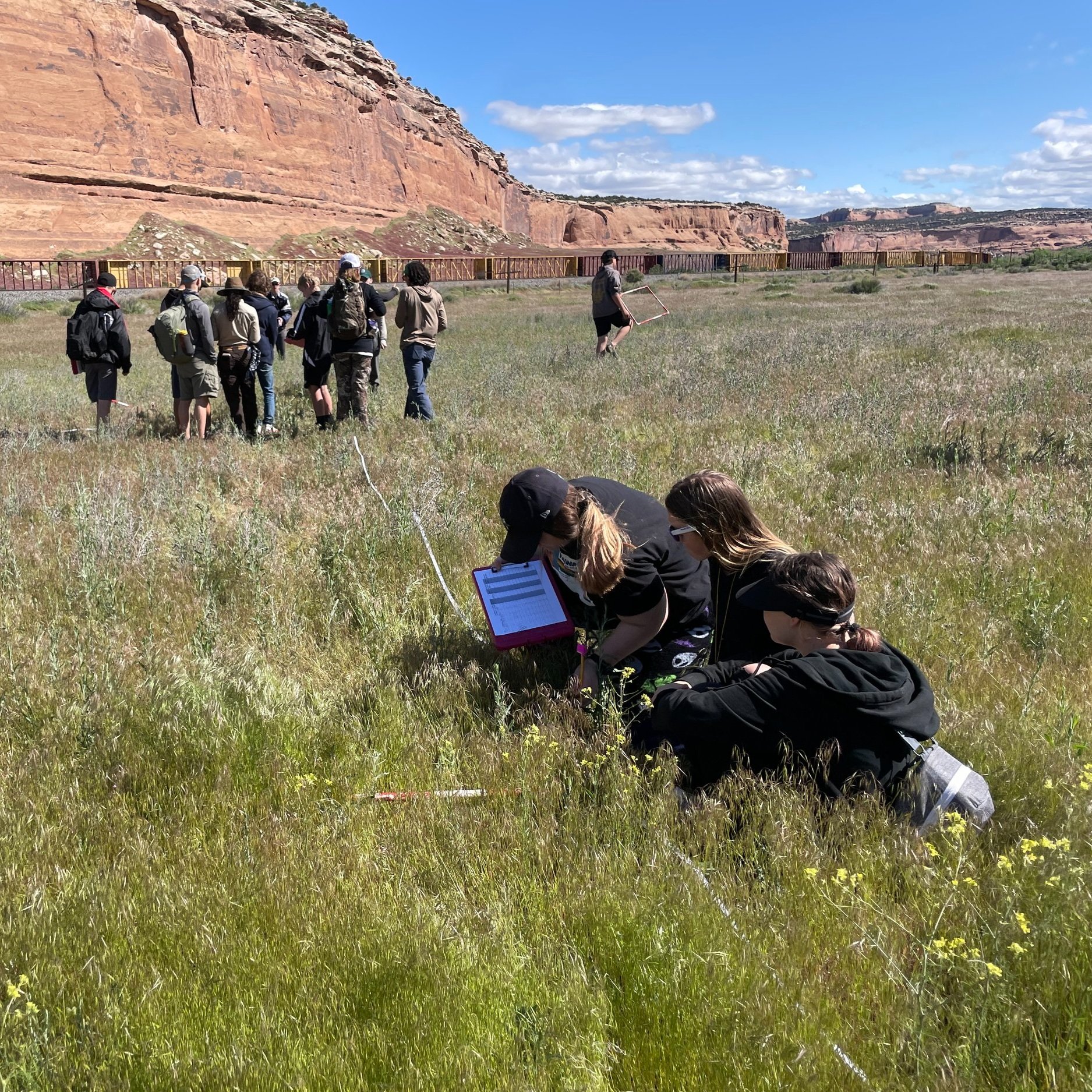
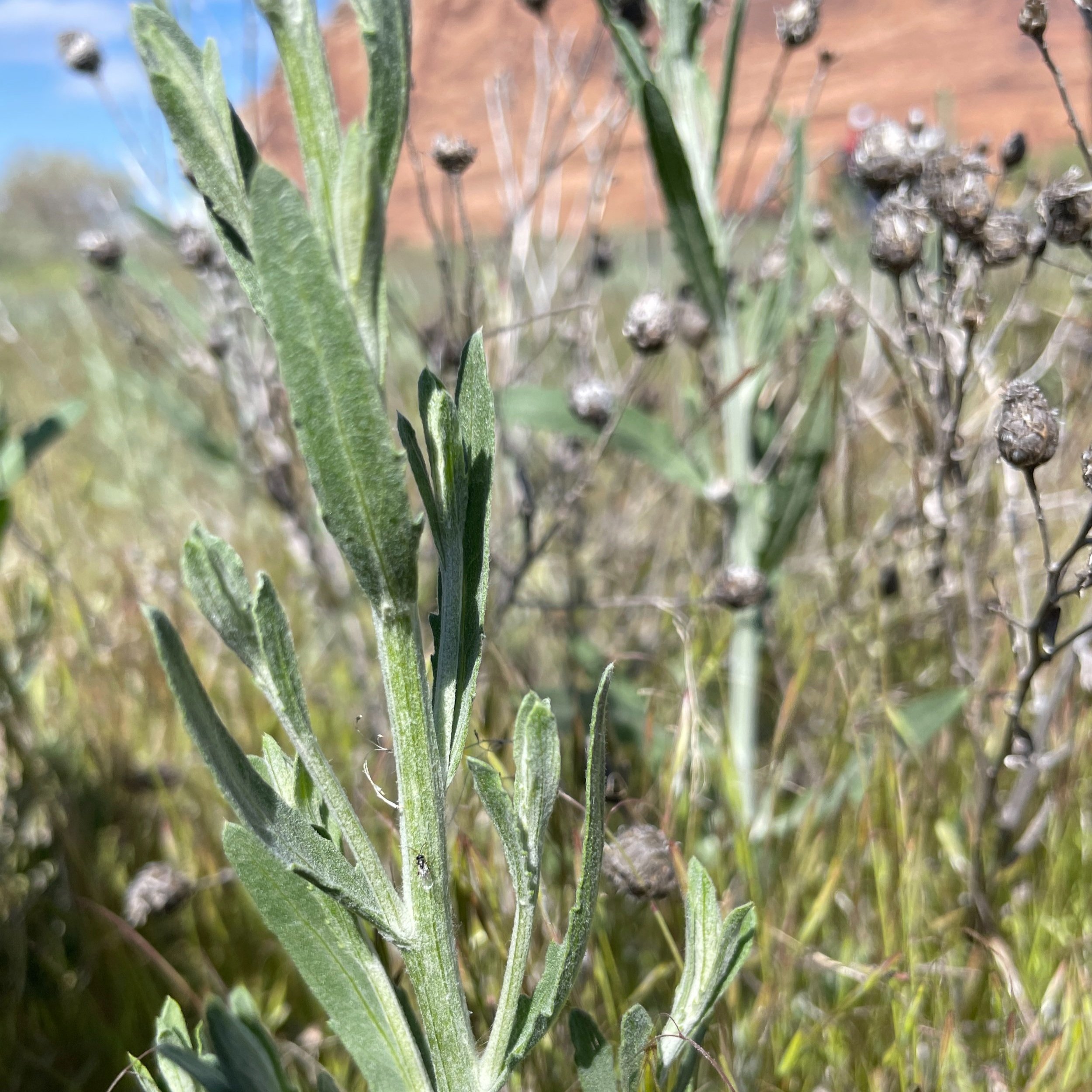
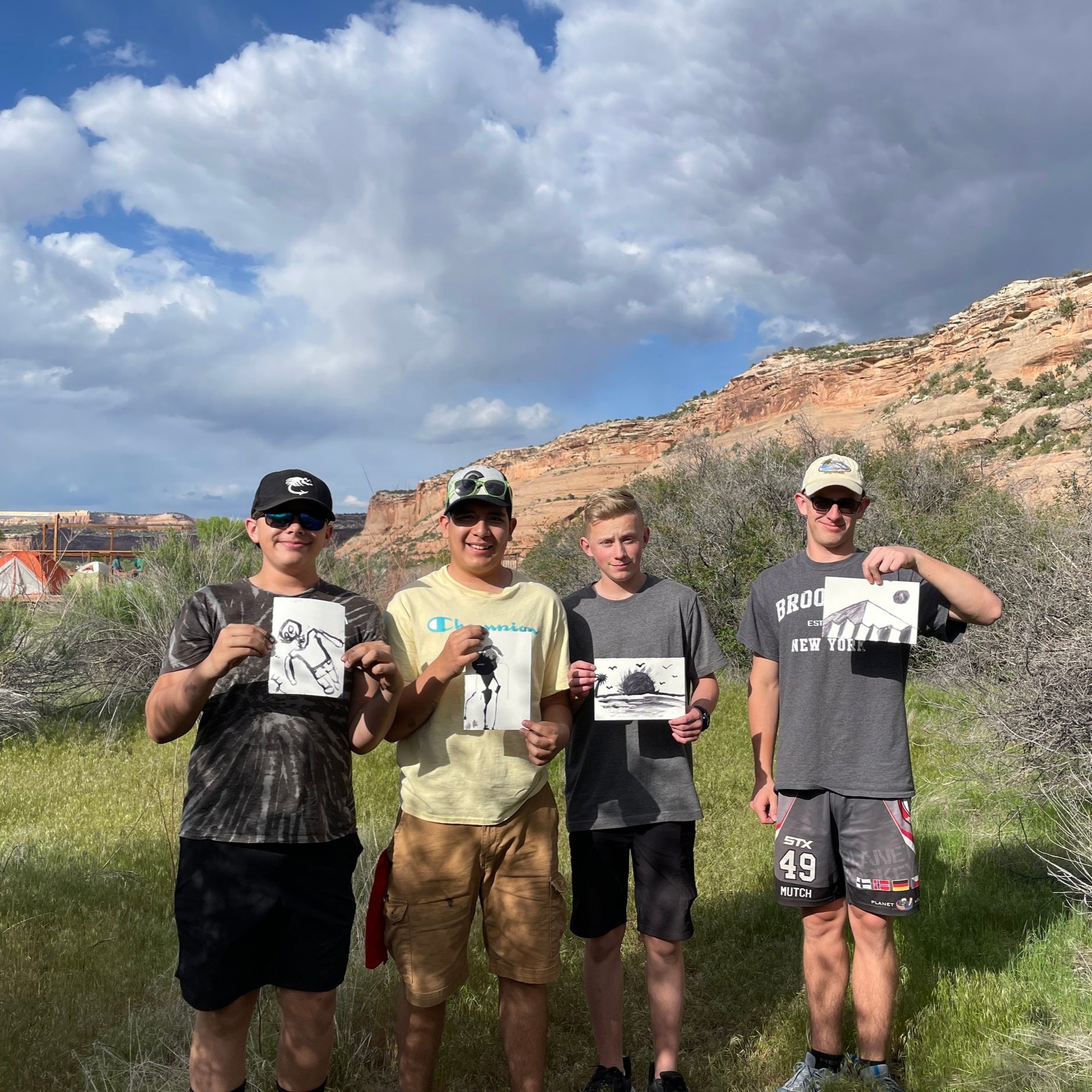
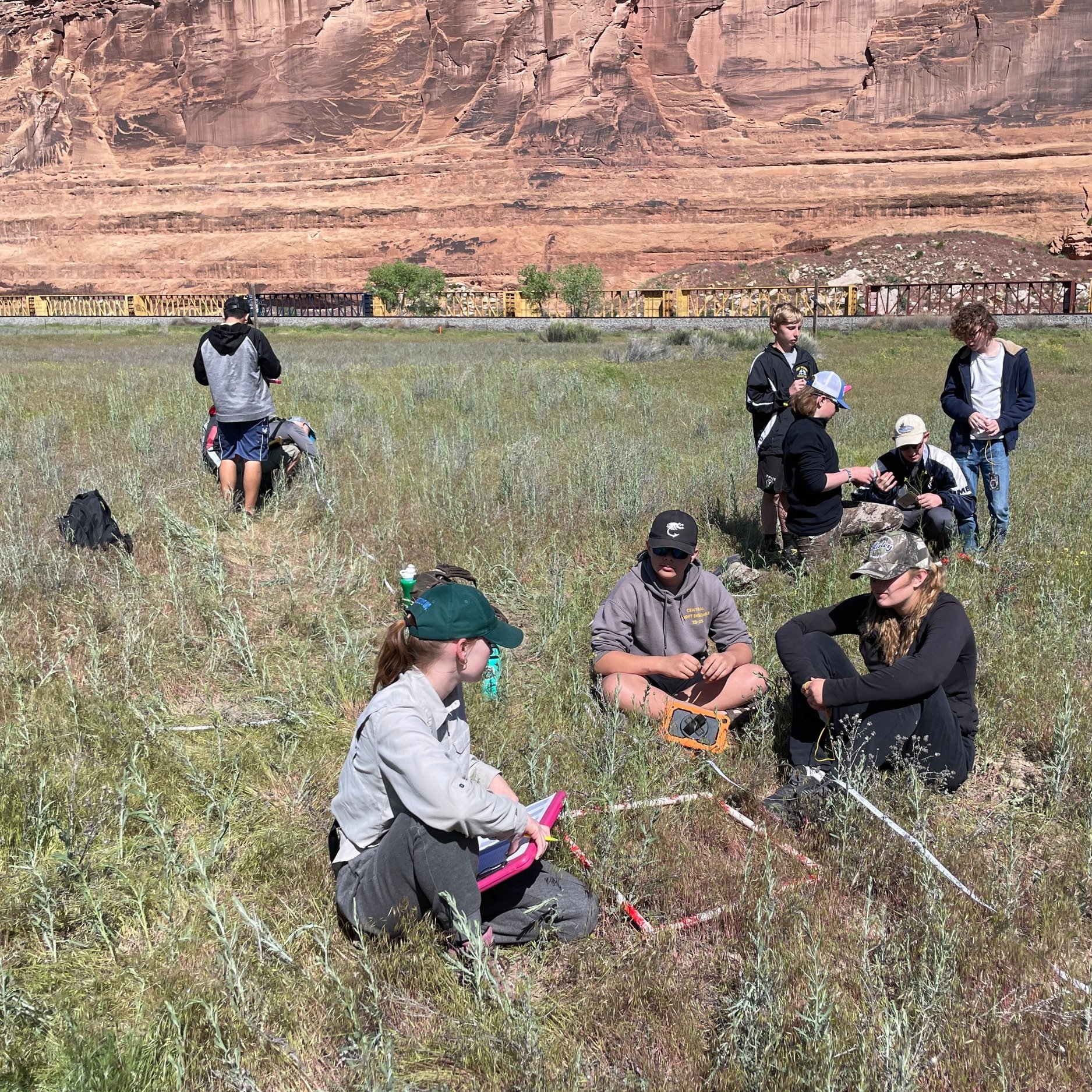
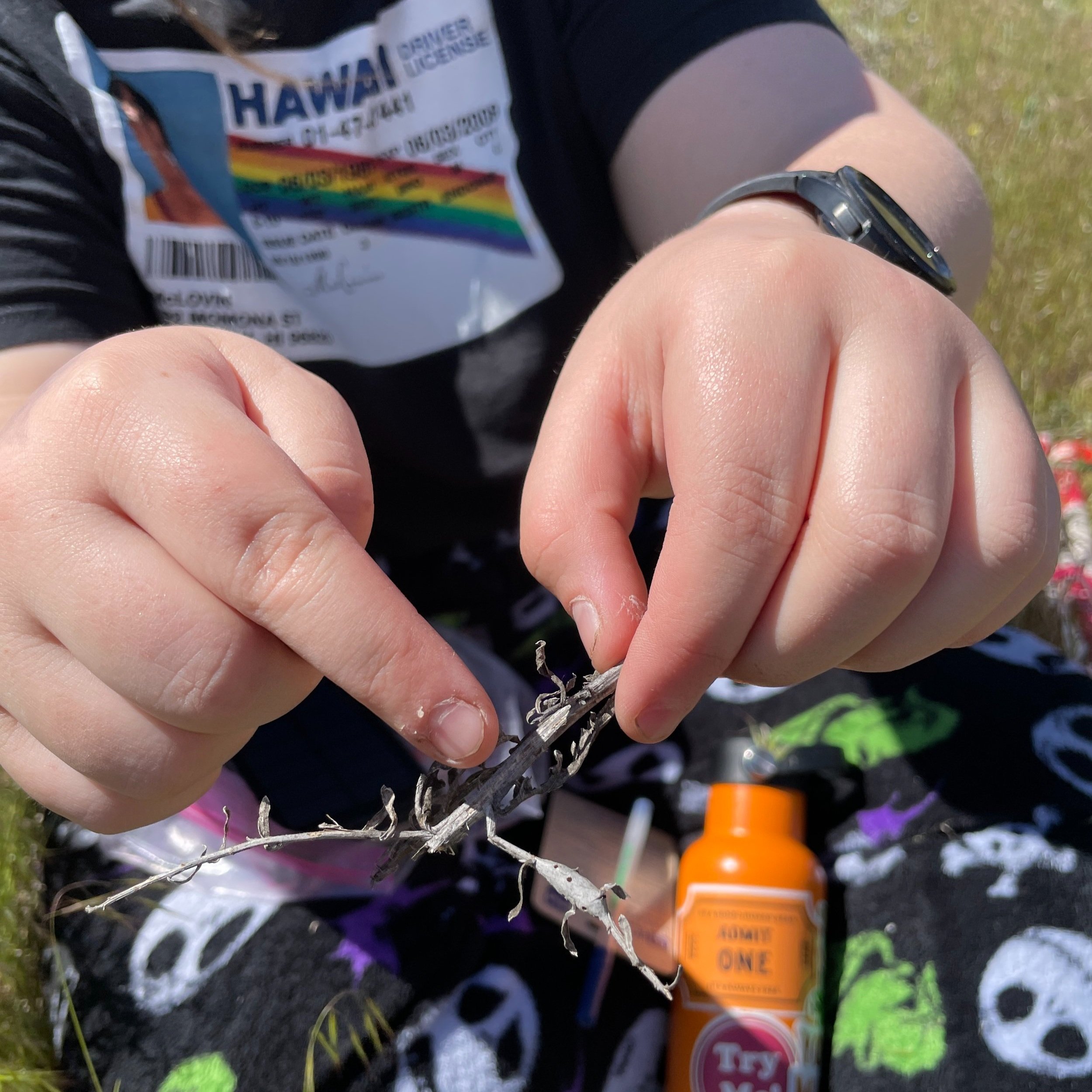
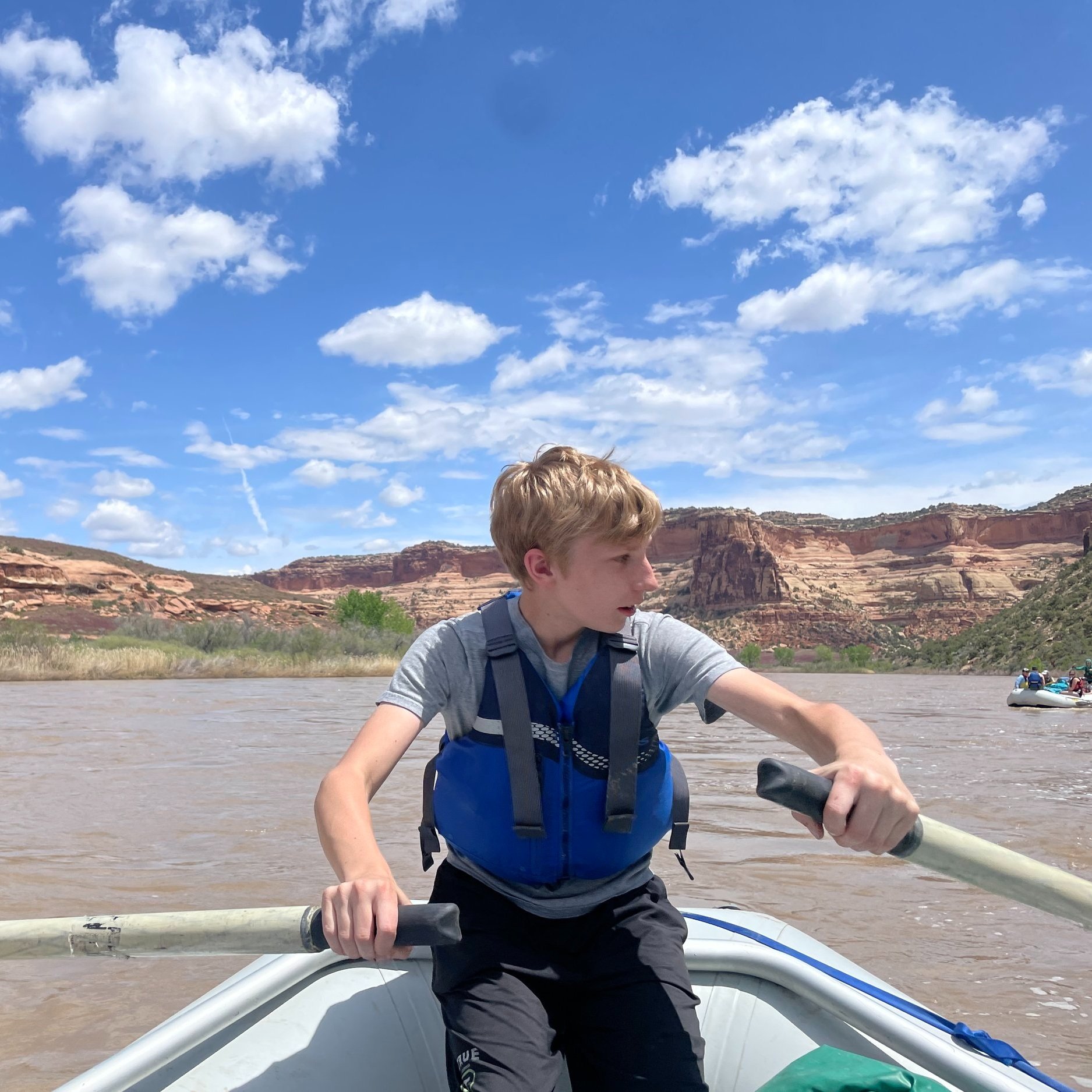
Three years ago, thanks to pilot funding from the National Environmental Education Foundation (NEEF), the Greening STEM project took local AP Environmental Science students out to CCA’s education camp, Catalpa, along the Colorado River. The project targeted a common invasive species, Russian Knapweed, by using biological controls; in this case, the biological controls were gall wasps provided by the Palisade Insectary. The class released adult wasps in the hopes that they would establish galls on the invasive plant. Galls are larval chambers that take away nutrients and energy from the plant and stunt its growth, helping to slow the spread of Russian Knapweed.
In 2022, one year after the initial release of the adult wasps, no galls were found. During this year's trip, however, students observed heavily galled stems and found adult wasps in the process of laying eggs and creating new galls! With more time, we expect to see a decrease in knapweed which will allow for native plants and the ideal three-tiered habitat structure to reestablish. Beyond the ecological success, the impact this project has on local students is far-reaching - participating in STEM-based research, rafting though desert canyons, and working with their classmates, experts, and local community will surely leave lasting memories.
“I love how this project empowers local students to participate in the management of our public lands. We at CCA aim to instill a sense of connection to the landscape through all our programming, and there is no better way to inspire the next generation of stewards than through authentic engagement in the stewardship process.” - Annie Carter, CCA’s Education Programs Manager
The success of this project relied heavily on the many partners involved - thank you to everyone who contributed! For additional information, you can check out the video we produced or the three videos NEEF created about the project in the first year (one, two, three).
